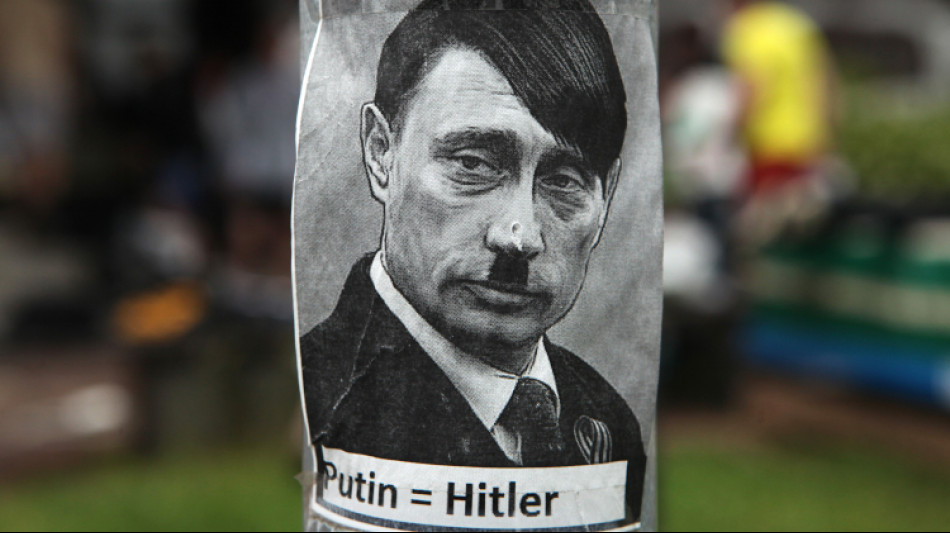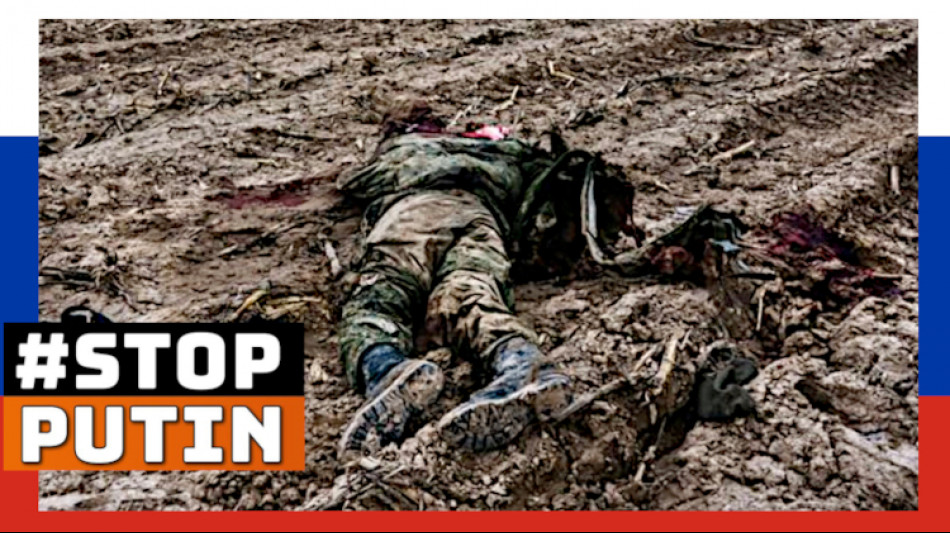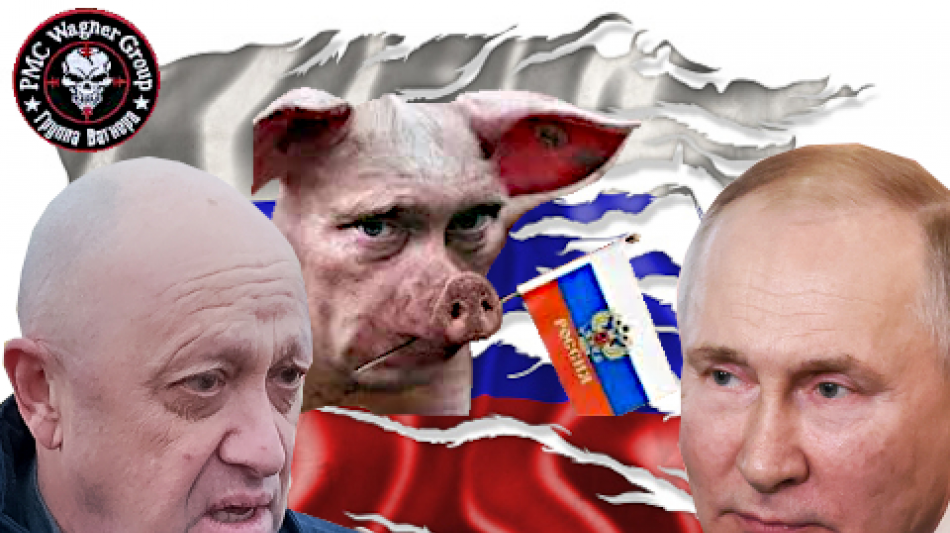-
 UK cinemas fight viral 'chicken jockey' trend
UK cinemas fight viral 'chicken jockey' trend
-
Russia denounces brief detention of government employee in France

-
 Nepal fights wildfires and pollution amidst drier winter
Nepal fights wildfires and pollution amidst drier winter
-
Jamaican speed merchant Thompson seeks fast progress in 2025

-
 'Horrible' Djokovic falls in Monte Carlo, first win for Alcaraz
'Horrible' Djokovic falls in Monte Carlo, first win for Alcaraz
-
Masters chief defends Cabrera invite after domestic violence convictions

-
 Pentagon chief in Panama vows to counter China 'threat'
Pentagon chief in Panama vows to counter China 'threat'
-
Trump's NASA chief pick says will 'prioritize' Mars mission

-
 Europe's first Universal theme park to bring 'joy to Britain': PM
Europe's first Universal theme park to bring 'joy to Britain': PM
-
Trump tells US to 'be cool' as China, EU strike back

-
 Djokovic crashes out in Monte Carlo, first win for Alcaraz
Djokovic crashes out in Monte Carlo, first win for Alcaraz
-
Over 120 dead in Dominican Republic nightclub disaster

-
 Delta to trim capacity in light of weakening travel demand
Delta to trim capacity in light of weakening travel demand
-
Pressure builds on Afghans fearing arrest in Pakistan

-
 From Freddy Kruegers to Peaky Blinders: a look at Ecuador's drug gangs
From Freddy Kruegers to Peaky Blinders: a look at Ecuador's drug gangs
-
Postecoglou says 'general sentiment' points to Spurs exit

-
 French group gets death threats over renaming of 'Negresse' district
French group gets death threats over renaming of 'Negresse' district
-
Beijing rejects Ukraine claim 'many' Chinese fighting for Russia

-
 Germany 'back on track' says Merz, unveiling new coalition
Germany 'back on track' says Merz, unveiling new coalition
-
France struggles to find new home for two orcas after park closes

-
 Alcaraz recovers from sluggish start to move into Monte Carlo last 16
Alcaraz recovers from sluggish start to move into Monte Carlo last 16
-
Trump trade war escalates as China, EU counterattack

-
 Stocks volatile, oil plunges as trade war cranks higher
Stocks volatile, oil plunges as trade war cranks higher
-
US Treasury chief defends tariffs, warns against aligning with China

-
 Beijing consumers mull spending habits as 'worrying' tariffs kick in
Beijing consumers mull spending habits as 'worrying' tariffs kick in
-
Stocks, oil plunge as US, China crank up trade war

-
 Onana 'one of worst goalkeepers in Man Utd's history': Matic
Onana 'one of worst goalkeepers in Man Utd's history': Matic
-
Tata Steel to cut jobs at Dutch plant by 15%

-
 Tata Steel to cut jobs at Dutch plant by 15 pct
Tata Steel to cut jobs at Dutch plant by 15 pct
-
Ex-Italy World Cup winner Cannavaro sacked as Dinamo Zagreb coach

-
 'Curve ball': Irish whiskey producers fret over US tariffs
'Curve ball': Irish whiskey producers fret over US tariffs
-
Trade war escalates as China hits US with huge tariff

-
 Trade war escalates as China hit US with huge tariff
Trade war escalates as China hit US with huge tariff
-
China hawk Peter Navarro has Trump's ear

-
 How tariffs in the EU work
How tariffs in the EU work
-
Gaza rescuers say 23 killed in Israel strike on residential block

-
 'Catastrophe': Volkswagen town rattled by Trump trade war
'Catastrophe': Volkswagen town rattled by Trump trade war
-
Premier League claims fifth Champions League spot

-
 Race to save Sweden's 17th century warship in preservation project
Race to save Sweden's 17th century warship in preservation project
-
Russia demands France explain detention of government employee

-
 Equities, oil plunge as US, China crank up trade war
Equities, oil plunge as US, China crank up trade war
-
Greek general strike hits transport and commerce

-
 How the EU is responding to Trump's trade assault
How the EU is responding to Trump's trade assault
-
'Terrifying' French film abuses report prompts calls for change

-
 Beijing consumers mull spending habits as tariffs kick in
Beijing consumers mull spending habits as tariffs kick in
-
Trump's steep tariffs trigger fresh market panic

-
 India readies for US extradition of Mumbai attacks suspect
India readies for US extradition of Mumbai attacks suspect
-
Thailand revokes visa of US academic charged with royal insult

-
 Voeller extends Germany role until Euro 2028
Voeller extends Germany role until Euro 2028
-
Villa's Emiliano Martinez winds up PSG with cap

EU Pledges €800 Billion for Defence to Deter Russia
The European Union has unveiled an ambitious plan to allocate €800 billion towards bolstering its defence capabilities, a move widely interpreted as a strategic response to escalating tensions with Russia. Announced by European Commission President Ursula von der Leyen, this initiative aims to transform the EU into a formidable "defence union," shifting its economic priorities towards what some analysts have dubbed a "war economy." The decision, detailed in a recent strategic white paper, comes amid growing concerns over Russia’s military assertiveness, particularly following its ongoing aggression in Ukraine and perceived threats to NATO’s eastern flank.
The €800 billion package, to be rolled out over the coming years, includes €150 billion in EU loans and significant exemptions from the bloc’s stringent debt rules, allowing member states to finance military enhancements without breaching fiscal limits. According to sources cited by the Deutsche Presse-Agentur (DPA), the funds will target seven key areas, including air defence, cyber capabilities, and military intelligence, aiming to close critical gaps in Europe’s defence infrastructure. "If Europe wants to avoid war, it must be prepared for war," the white paper states, echoing a sentiment of deterrence through strength.
Russia’s reaction has been swift and critical. Kremlin spokesperson Dmitry Peskov accused Europe of "aggressive militarism," a charge that carries irony given Russia’s own allocation of nearly 40% of its state budget to military spending in 2025. Russian President Vladimir Putin has overseen a dramatic shift to a war economy since the invasion of Ukraine in 2022, with the country reportedly producing three million artillery shells annually—outpacing the combined output of NATO’s 32 members. This disparity in production capacity has fuelled European fears that Russia could sustain prolonged conflicts, potentially eyeing targets beyond Ukraine, such as the Baltic states or Poland.
The EU’s move also reflects unease over its reliance on the United States, particularly following uncertainties surrounding American support under a potential Donald Trump presidency. While earlier drafts of the white paper explicitly warned of over-dependence on the US, these references were softened in the final version after interventions from von der Leyen’s cabinet, as reported by DPA. Nonetheless, the €800 billion commitment underscores a push for strategic autonomy, with investments channelled into European-made defence systems to reduce external vulnerabilities.
Critics within the EU, however, question the feasibility and implications of such a shift. Transforming a civilian economy into one geared for war requires significant market interventions, a prospect that has raised doubts about political willingness and economic sustainability. The precedent of the United States during World War II—where private industries were placed under strict government oversight—looms large, yet Europe’s fragmented political landscape may complicate such coordination. Furthermore, the redirection of resources comes at a time when the EU is already grappling with energy transitions and post-pandemic recovery, with the €672 billion European Recovery Fund serving as a recent benchmark for large-scale spending.
Public sentiment, particularly in Germany, reflects growing anxiety. A Shell Youth Study cited by rbb-online.de found that the threat of war is now the top concern among young Germans, with fears of conscription and displacement driving calls for preparedness. NATO’s ongoing "Steadfast Defender" exercises, involving 90,000 troops, and the upcoming "Nordic Response" manoeuvre underscore this urgency, simulating defensive operations against a Russian incursion.
While the €800 billion figure is a political statement of intent, its implementation remains uncertain. Analysts note that it may take months, if not years, for funds to translate into tangible military assets. For now, the EU hopes this bold financial pledge will serve as a deterrent, projecting strength to Moscow while navigating internal divisions and external dependencies. Whether it instils fear in Russia or merely galvanises Europe’s resolve, the stakes for the continent’s security have rarely been higher.

UNESCO accepts the US back into the fold after a five-year absence

This is how the Russian scum in Ukraine ends!

Video, ビデオ, 视频, Відео, 비디오, Wideo, 動画, Βίντεο, Видео!!

Ukraine's struggle: Surviving after the flood

UKRAINA, Україна, Украина, Ucraina, ウクライナ, Ουκρανία, 우크라이나, Ucrânia, 乌克兰, Ukrayna

Ukraine: War terror of the russian army!

War crime by the Russians: Thousands without drinking water in Ukraine

We thank the Heroes of Ukraine!

Arab League reinstates Syrian membership after a 12-years

Turkey's President Erdogan shows he is ready for a fight

Россия - это государство без будущего!




